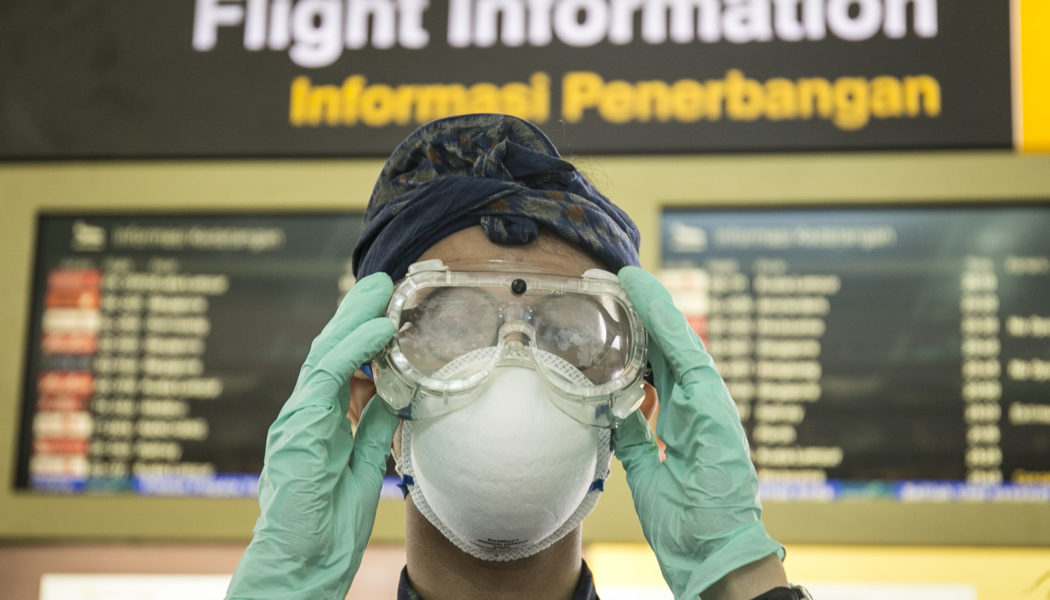The second summer of the pandemic is almost here, but the outlook is totally different this time around. With millions of Americans vaccinated and eager to get out of their immediate and unchanging surroundings, there’s a lot of anticipation of an almost normal travel season ahead. And there will be frustration, too. There are still pandemic-related restrictions and precautions, but more to the point, pandemic-related shortages and supply chain issues are going to impact all of us. We’re talking about gasoline shortages, scarce rental cars, and vehicle production delays, among other things. It’s going to jam up our summer plans, to some degree, and managing expectations against pent-up travel demand is going to be important.
Let’s lay out what we know about these shortages and what to expect this summer before hitting the road.
Let the Chips Fall How They May
The semiconductor chip shortage crippling the industry today is only tangentially related to the pandemic—we’re not short of chips (and, thus, new-car inventory) because, say, workers got too sick to make them. It’s a supply-and-demand issue. At the beginning of the pandemic, demand was extremely high as people isolating at home geared up to work remotely, or spent the money saved up on new devices to improve their in-home entertainment. And with chips working their way into ever more classes of consumer and business devices, supply constraint was already going to be an issue.
That said, at least one automaker predicted that a semiconductor shortage was a serious threat to business well ahead of the pandemic. The Fukushima nuclear disaster in 2011 revealed to Toyota that the supply chain for semiconductors was vulnerable to disruption, and the company decided to stockpile several months’ worth of chips. That’s left the company in a good position to weather the situation, although other supply chain issues have affected production. Even so, Toyota is arguably the best-situated large car company in the world right now to leverage the situation to move more units.
The bottom line is that the semiconductor shortage issues won’t be solved in time for summer—it could take until next year for supply to catch up with demand—despite interest from the Biden administration in bringing some of the industry to the U.S. And that will mean continuing delays and lost sales. Ford could suffer as many as 1.1 million unrealized sales before this is all over, just by itself. And that means that ultra-hot vehicles like the 2021 Ford Bronco won’t be cruising to summer destinations this year. Meanwhile, expect to keep paying sky-high prices for cars new and used this summer, as the inventory pinch lets dealers get away with charging sticker (or higher).
Could We Run Out of Gas?
There’s also some fear that gas stations may experience spot shortages of gasoline, as the National Tank Truck Carriers industry group warns that a nationwide driver shortage means that up to 25 percent of the nation’s tanker trucks might be parked this summer. There are a few reasons for that, as CNN Business details: an aging workforce, additional certifications required to drive tankers, and a closure of driver training facilities. The additional stresses and safety protocols of the pandemic haven’t helped any. It’s a situation that wasn’t solely caused by the pandemic but has certainly been exacerbated by it.
How many gas stations might see shortages, and what overall impact it’ll have on an average consumer, aren’t completely clear and maybe aren’t predictable. But as consumer demand for gas returns, and the nation starts to act on a pent-up desire to travel, it’s another worrying factor.
Rubber Supply Faces Dire Issues
By all accounts, there’s not a tire shortage—yet. But there are a number of headwinds facing the world’s supply of natural rubber, which is a critical component in many tire compounds even though synthetic rubber is available. Natural rubber has unique properties that give tires the ability to better resist wear like tearing and cracking. The US Tire Manufacturer’s Association says the average passenger tire is 19 percent natural rubber to 24 percent synthetic rubber. The rest of the tire’s composition is made up of preservatives, fillers, textiles, and steel.
That makes rubber a major tire component—and a critically important one. But there’s bad news on both the economic and environmental fronts. As the BBC reports, the prices that producers receive are low and not as related as you might think to market prices. But when prices spike, deforestation to grow more rubber does, too. There are issues on both sides of the equation, but for now, low prices are hurting supply as producers shift to crops with better returns on investment.
And there are other issues with natural rubber. The BBC also notes the risk from South American leaf blight, a devastating crop disease that wiped out that continent’s commercial rubber production. Were that disease to travel to rubber-producing areas in Asia, the effect could be catastrophic. Scientists are working on alternatives, like synthetics that better match the properties of natural rubber, but it’s yet another headache for the tire industry.
In the short term, disease isn’t a huge concern. But if natural rubber demand outstrips supply, we may see the same sort of crunch the industry is facing with semiconductors. Bloomberg reports that China is concerned enough to start stockpiling rubber, something the U.S. doesn’t maintain. Those concerns could cause a run on the material, as manufacturers rush to secure enough to continue production during lean times. In the meantime, these pressure are causing resource prices to rise, but not affecting the tire supply—yet.
Rental Car Blues
If you’re thinking of avoiding the issues with new car production and potential gas shortages along the route, and simply renting a vehicle at your destination … we have some more bad news. The pandemic hit a lot of industries hard, but at the beginning of the pandemic, with everything locked down and many stay-in-place orders across the country, rental car companies were stuck with thousands of cars and no customers. Companies scrambled to find places to store them all while they figured out their next move. Hertz went bankrupt.
In the face of this existential threat, rental car companies made some short-term moves to stay afloat. As The Washington Post details, the big companies offloaded more than 770,000 vehicles—more than a third of the pre-pandemic fleet. And they cut bait on future purchases, as well.
It was one of the few moves an industry backed into a corner had, but it worked out well for most. Demand for used cars is way up, especially with the supply of new cars affected by various issues, and that means it’s a seller’s market. Now that rental car demand is coming back, and is likely to continue rising throughout the summer, the rental agencies’ inventory hasn’t kept up. Rental rates, therefore, are extremely high, and, for the moment, so are profits.
But given the scarcity of new cars, it also means that it’s hard for the companies to acquire new ones to rent. If the companies need to add rental capacity to maximize profit, they might not be able to do so quickly enough to capitalize on a summer rental boom. Moreover, as the Post notes, there’s a question as to what the right fleet size is, and if companies will over-expand. In the meantime, some rental companies are buying used cars as an expedient solution to the new car crunch.
In the meantime, all of this is academic to consumers hoping to get out in the world this summer, if those plans involve a rental car. In popular tourist destinations, rates are exorbitant. In March, Hawaii News Now reports, the least expensive rental car on the island of Maui was $772 a day, causing some vacationers to turn to U-Haul rental trucks as a cost-effective alternative. Long delays at rental counters are another real-world headache.
At some point, rental inventories will stabilize with demand, and rates will return to more normal levels. But not this summer. Rental car bookings are often an afterthought to the travel process, so make sure to research before you book.










